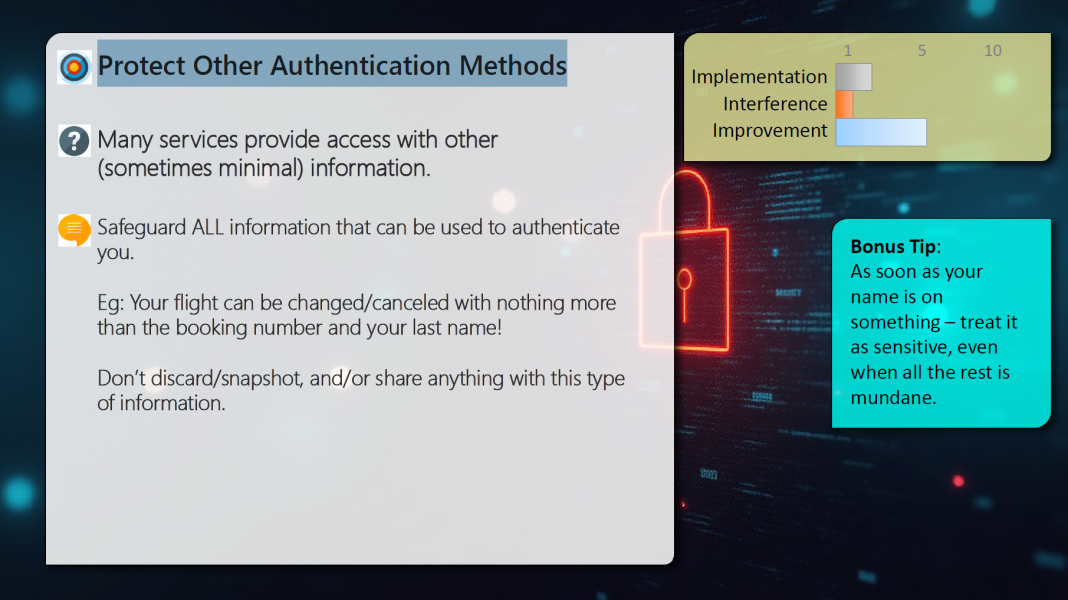This article is part of my Cybersecurity Hygiene Series - I recommend reading the background information about the series first to understand how these tips are structured. See this post: Cyber Security Hygiene.
Protect Other Authentication Methods
For the most part we can all easily understand the importance of securing our usernames and passwords. However it can be easy to overlook all the other information that can sometimes be used to access our accounts. From your email and birth date to sometimes seemingly innocent reference numbers. It's just as important to secure this information as it is to secure your password.
Why?
My favorite example of this comes from a time that I needed to help my parents cancel a flight. They had previously shared their Itinerary (something I see people do on social media all the time - Hey cool we're going to <insert vacation spot here>) So I went to the airline's web site to help them out. It asked me for their last name - I entered it. Then it asked me for their flight booking number - I entered this from the Itinerary... and that was ALL that was needed! With just this information I was able to cancel or change their flight. Personally, I find this shockingly bad security on the part of this airline, but the point here is that anyone sharing their Itinerary on social media is basically giving the world access to mess with their booking!
The above is just one example but use this as something to make you think about all the times you can access your important information with something like your name and birth date. Don't just discard this "sensitive" information and by all means don't share it indiscriminately.
Bonus Tip:
To some extent, as soon as your full name (and especially your address) is printed on something - treat it as sensitive; even if the remainder of the information on the document might seem very mundane.
An example: Consider a marketing offer from your bank. The offer has no mention of any of your accounts, the balances, or anything else, just marketing drivel, but it has your name and address because they sent it to you. The thing that is sensitive about this: it tells a potential attacker what bank you use - a piece of information they could use to try and access your bank or steal your identity. Don't just recycle this information, shred it, it takes a few more seconds to do but is a best practice.

